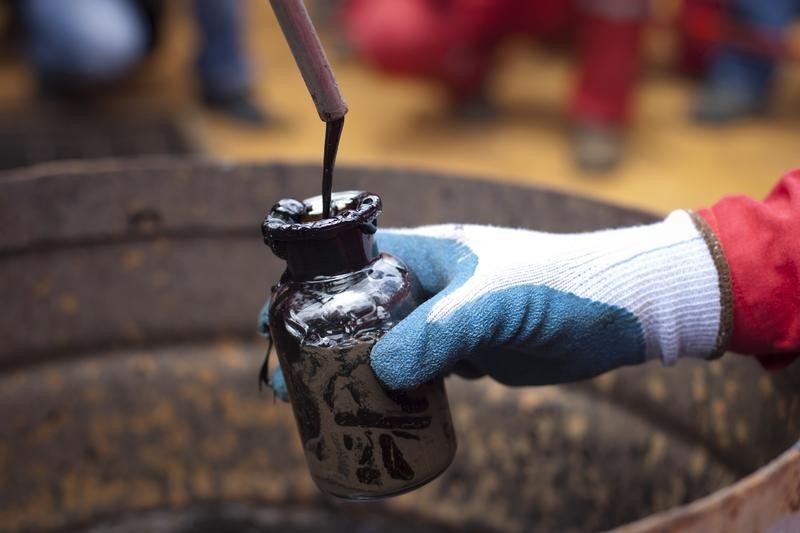By Barani Krishnan
Investing.com - Oil prices rose 4% in their strongest rebound since the outbreak of the Omicron scare, as longs returned to the market on seeing fewer negative headlines about the variant on Monday.
Also bolstering sentiment was Saudi Arabia’s move to raise the OSP, or Official Selling Price, of its U.S.- and Asia-bound crude from January and renewed hints from producer group OPEC and its allies that they may go back to cutting output.
WTI, or the West Texas Intermediate benchmark for U.S. crude, was up $2.68, or 4%, at $68.94 per barrel by 1:30 PM ET (18:30 GMT). WTI hit a four-month low of $62.48 last week, after a seven-year high of $85.41 in mid October.
London-traded Brent crude, the global benchmark for oil, rose $2.64, or 3.8%, to $72.52. Brent fell to $65.80 last week, from a 2014 high of $86.70 in mid-October.
While there was heavy buying among traders sensing a bargain to last week’s lows, some analysts cautioned that the upward momentum could reverse at any time once new Omicron warnings creep back into the market.
“Ultimately, the most bullish thing for prices is that Omicron is reportedly less severe and if more good news follows, we can all relax a little and the downside risks to the economy will abate,” said Craig Erlam, analyst at online trading platform OANDA.
But he also said, it was “too soon to get carried away” with the reprieve of the virus.
“We've seen this repeatedly since the initial news broke a little over a week ago. Markets have been very headline-driven and this is just the latest rally on the back of some positive reports.”
“If the good news doesn't follow, OPEC+ will pare back output and support prices that way. The question is how much the lows will be tested in the interim, if at all. Producers' resolve has been tested before on many occasions.”
OPEC Secretary General Mohammad Barkindo said on Saturday that oil producers might go back to slashing production if they could not stop the bleeding in crude prices that had occurred over the past six weeks.
"We will continue to do what we know best to ensure we attain stability in the oil market on a sustainable basis," Barkindo told an industry event on Saturday.
Decoded, it meant that the additional 400,000 daily barrels that OPEC and its allies had committed to pump since July will likely be scrapped if global demand and prices for crude remained anemic come January.
OPEC and its allies under the OPEC+ umbrella are still withholding some 5.0 million barrels of regular daily supply from the market as part of production cuts carried out at the height of the Covid-19 price crash. The alliance has repeatedly indicated that it had no qualms adding to those cuts.
Output cuts and OSP hikes by OPEC+ head Saudi Arabia have been two proven measures in boosting crude prices.
The Saudi “Arab light grade” crude for Asian customers will cost $3.30 a barrel above a benchmark from January, 60 cents more than in December, the kingdom’s state-owned oil firm Saudi Aramco (SE:2222) said on Monday. Aramco also upped by 80 cents the broader pricing on its January-bound crude to Asia and America.
